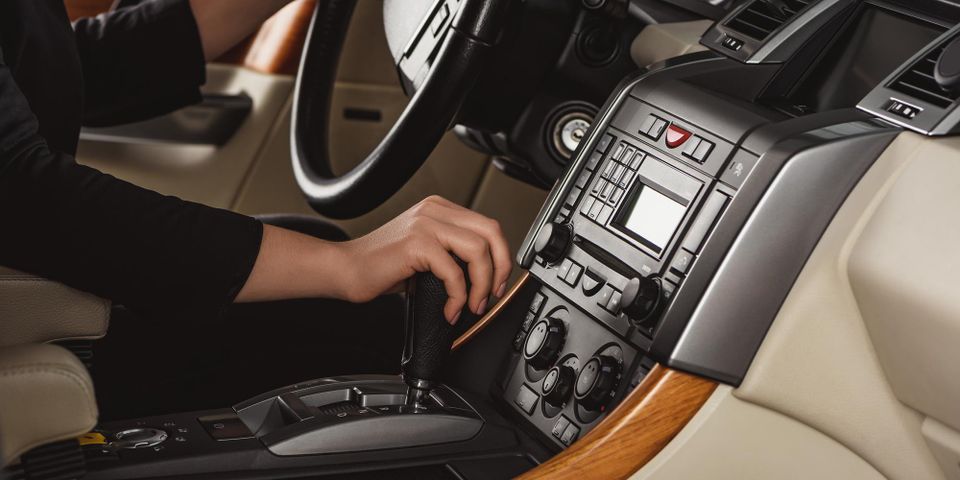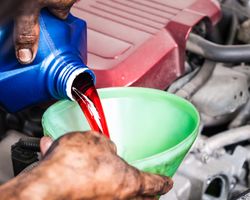A Guide to Changing Transmission Fluid

While most people know when to have the engine oil changed, the transmission fluid schedule may be more elusive. Below is a guide to follow to keep this vital fluid in good condition and help you avoid unnecessary transmission repairs.
Transmission Fluid Basics
Transmission fluid lubricates moving parts and assists with smooth gear shifting while protecting metal surfaces from wearing down too prematurely. It also conditions gaskets and cools the transmission to stop it from overheating.
When it’s time to change it, many shops will flush the system before pumping in new fluid. Certain manufacturers like Honda® don’t advise flushes on their cars and will explain what should be done in the manual. Some transmissions also have filters that need changing or cleaning when the fluid is replaced.
When to Change It
 The schedule for automatic transmission fluid changes depends on your vehicle. Each manufacturer has their own recommendations in their owner’s manual. Many recommend changing out the fluid around 100,000 miles, though some Ford® models push it to 150,000 miles.
The schedule for automatic transmission fluid changes depends on your vehicle. Each manufacturer has their own recommendations in their owner’s manual. Many recommend changing out the fluid around 100,000 miles, though some Ford® models push it to 150,000 miles.
However, if you speak with transmission repair technicians, they recommend service at around 40,000 to 50,000 miles, especially if you drive in stop-and-go traffic or haul heavy loads. These habits deteriorate the fluid more quickly since they raise the temperature and put more strain on the transmission.
Most transmission fluids are red, although some are other colors, like green. No matter the color, it will darken as it gets older, and you may even see debris floating in it. You might also smell a burning odor and notice issues when shifting gears. Old, dirty fluid can cause your transmission to fail as valves become clogged with gunk, leading to a pricey repair.
If you drive a manual transmission, consult owner’s manual since these vehicles run on their own schedule and rely on conventional gear oil. It’s also more complicated to check the gearbox in these cars, so leave it to the auto repair experts.
For transmission repair and other car tuneup services, call A-1 Auto A/C Specialist & General Auto Repair in the heart of Honolulu. Whether you need a new car battery or brake repairs, their ASE-certified technicians will diagnose your issues and offer efficient solutions to get you back on the road. Call (808) 836-2939 to make an appointment, or visit them online for more information on their offerings.
About the Business
Have a question? Ask the experts!
Send your question

